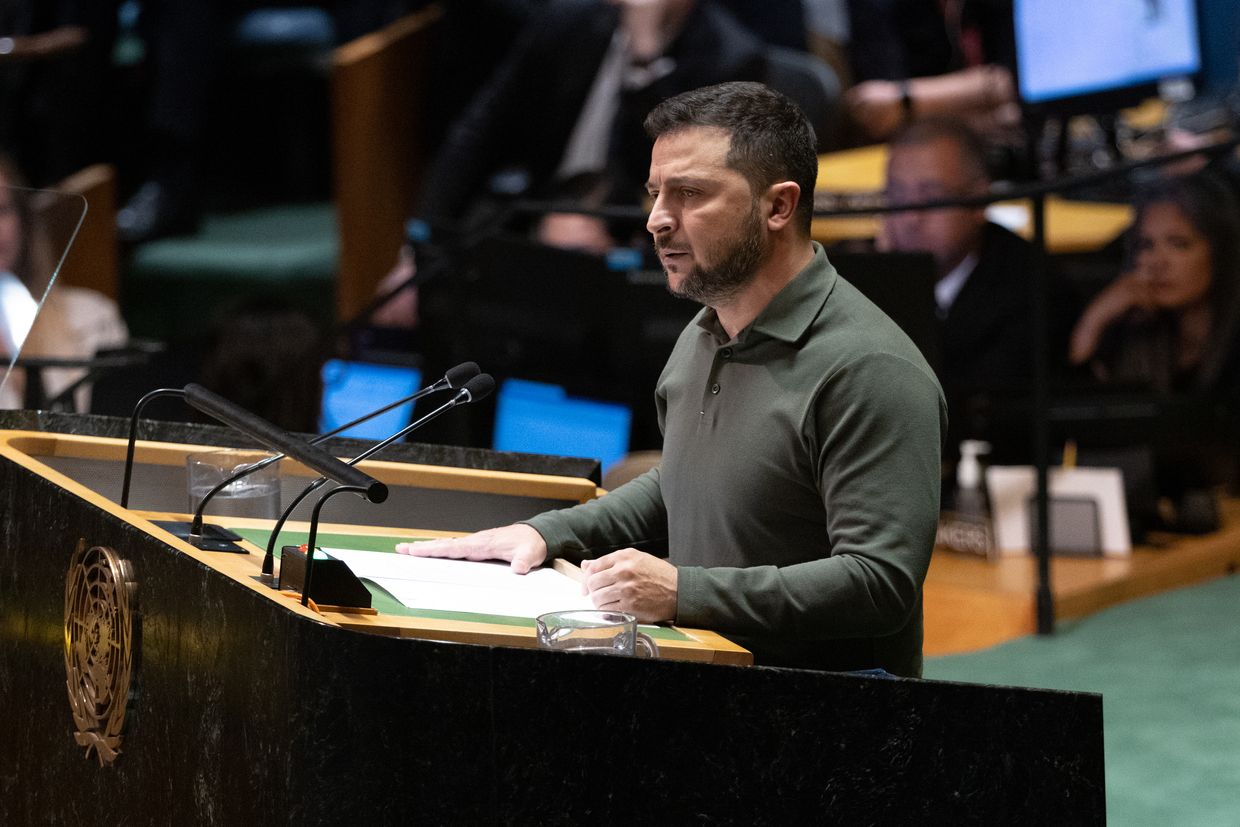Zelensky proposes restricting UN Security Council members' veto rights

President Volodymyr Zelensky on Sept. 20 proposed reforms of the U.N. Security Council, including restrictions on the veto powers of its permanent members, arguing that Russia has been abusing its veto rights.
The president said in his address to the Security Council that Russia, as an aggressor state, continues to block decisions and paralyze the U.N. body's work.
"A veto should not serve those who are obsessed with hatred and war," Zelensky said at the meeting in New York, also attended by Russian Foreign Minister Sergei Lavrov.
Ukraine's head of state proposed that the U.N. General Assembly should be able to overcome the veto with two-thirds of the votes, "which will reflect the will of the nations from Asia, Africa, Europe, the Americas, and the Pacific Ocean region."
He added that the membership in the Council should be suspended for states carrying out aggression against other U.N. members.
Zelensky further proposed to expand the ranks of the Security Council's permanent members, suggesting Germany, Japan, India, and other nations from Latin America, the Middle East, Africa, and Asia as suitable candidates.
As a third step, the president suggested creating a sanctions system for preventing aggression. The president specified that any member of the General Assembly could suggest imposing sanctions against an aggressor, which would be then referred to the Security Council.
Aside from Russia, the U.N. Security Council comprises the U.S., the U.K., France, and China, and 10 more non-permanent members sitting on a rotating basis.
According to the U.N. Charter, the Council's responsibilities include establishing peacekeeping operations, enacting international sanctions, and authorizing military actions.
Zelensky arrived in New York on Sept. 18, delivering a speech at the U.N. General Assembly a day later. During his address at the U.N. headquarters, the president warned that Russia's aggression threatens not only Ukraine but also other nations worldwide.
After his New York trip, Zelensky will head to Washington, D.C. to hold a bilateral meeting with U.S. President Joe Biden, senior members of Congress, and other American political and military leaders.













